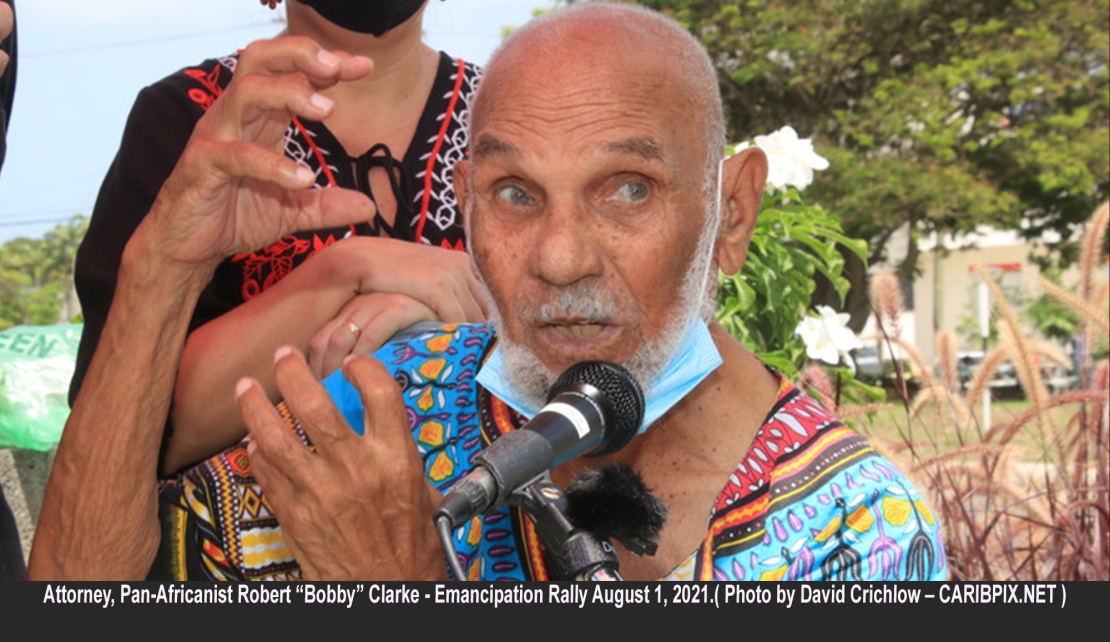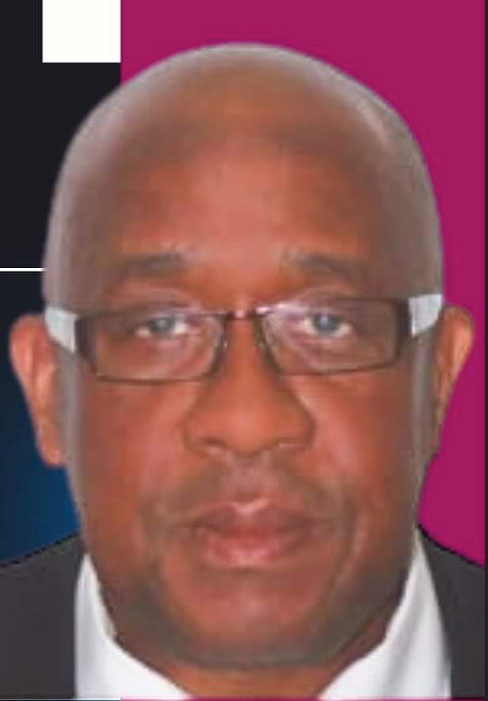Tribute to the Legendary Bobby Clarke - Global Afrikan Congress

For Whom the Bell Tolls - Brother Robert ‘Bobby’ Clarke transitioned to be with the ancestors on Sunday, 25th September, 2022, and has left us with a vision of what is imperative to build a better society, as his decades of struggles for such a society have enriched our experiences to fight with all our energies and commitment to put his dream and that of millions of improvished peoples to reality.
Bobby was and is for us a revolutionary giant worthy to emulate and who we will emulate as we fight for a just society so dear to him.

He was demonized and targeted by the regional misleaders for advocating Black Power in the newly independent countries and colonial states in the Caribbean.
Thus, like Dr Walter Rodney and Stokely Carmichael (Kwame Ture), Bobby was prohibited from travelling to several countries, including the land of my birth Jamaica.
This generation of Black radical anti-capitalist activists, intellectuals and theorists to which Bobby Clarke belonged , included Walter Rodney, Lloyd Best, Norman Girvan, Tim Hector, Ann Dayia, George Beckford, Maurice Bishop, Jacqueline Craft, Joan French and George Odlum, among others.
Their central focus was one that grappled with the historical problems of a economic dependency, inequality inincome and wealth distribution in the Caribbean, South and Central America, continental Africa and the global African diaspora.
Bobby Clarke was one of the early ardent defenders of the Cuban revolution, for which he interrupted his Law studies program in London, to visit Cuba at the very embryonic stages of its revolutionary process. His support for the Cuban revolution was unwavering, up to his last days with us on this earth.
Visiting Bobby's home, one was in for a delightful treat of the rich history of the Cuban revolution, which highlighted the achievements of transforming the Cuban society, its political economy and the prominence of Comandante Juan Almeida, and seeing pictures of the Afro-Cuban leader and compatriot of Fidel, which was a resounding slap in the face of the of those who down-played the anti-racist character of this epic revolution.
Juan Almeida was a highly decorated leader of the July 26th movement in Cuba, whose photograph was prominently displayed among the pantheon of Caribbean heroes, such as Haiti's Toussaint L’ouverture, General Bussa of Barbados, Tula (Curacao), Sam Sharpe (Jamaica).
Bobby was very proud of a Caribbean society coming -out from the experiences of enslavement and colonization, standing up to the oppressors with the promise to liberate itself from all forms of oppression.
In keeping with his revolutionary consistency Bobby Clarke unflinchingly expressed his opposition to the barbarism of US imperialism and the steadfast rationale of the US government’s rationalization of the cruelty of its policy and practices of the illegal and criminal economic sanctions and blockade against Cuba, with an equally illegal, cruel unilateral coercive measures against our sister countries of Venezuela and Nicaragua.
He was equally conscious of the fact that the government of the United States of America wanted the Cuban revolution to suffer the same consequences as the Haitian revolution (1804), organized by the neo-colonial and enslavers-owning nations, of Europe and North America.
He was very vocal in asserting that the people of the Caribbean, South and Central America and Africa, not only in theory but in action, have the inalienable right to complete equality, with all peoples including the citizens of Europe, North America, Australia and New Zealand.
As his heirs, we have no choice but to continue to fight for Bobby’s dream to see racial, social and economic equality realized in the Caribbean including in his own country of Barbados. The latter necessitates uprooting white supremacy and dependent capitalism for which Bobby Clarke fought as a trade union organizer, a lawyer, activist and social justice leader.
Indeed, it was for the dream of full liberation from all forms of oppression and indignities that as a revolutionary leader and activist that this dignified brother, Bobby Clarke fought in the courtrooms, on the picket lines, in the streets, at corporate headquarters, and wherever and with any and everyone willing to be allies, in this necessary struggle for a better world for the poor and downtrodden.
We must never forget that the political and social elitist classes in Barbados and the wider Caribbean which included and still include descendants of enslaved Africans found ‘common cause’ with some of the most reactionary elements of the land-owning class of ‘white angels’ on the island, and together, vilified in unprecedented ways, the causes which our dearly departed brother Bobby fought for in the name of and alongside the marginalized masses.
Some of these political elites and apologists of dependent capitalism chastised Bobby Clarke as a misfit, a good-for-nothing and other unflattering names coupled with prolonged and consistent anti-communist smear campaigns at the height of the ‘Cold War’ between capitalism and socialism.
Clearly, the main goal of these apologists of capitalism was intended to discourage the brother from his life-long battles on behalf of the poor and those made deliberately voiceless. We in the GAC are in full agreement with Bobby that in some cases, the latter campaign was done at the behest of foreign powers, whose interest is in direct opposition to our people.
However, it is equally important that we always remember that despite the enactment of anti-trade union, emergency legislations and anti-communist campaigns by the political elites to prevent him from talking to the people on the street and to demoralize him, in his demand for equal rights and justice, they were never able to break Bobby’s fighting spirit and his determination to change the oppressive capitalist system in his beloved Barbados. This is an important legacy of Bobby that will be a source of inspiration for all of us and for the future generations of fighters.
Likewise, those of us who struggle for the revolutionary end of capitalism as Bobby Clarke did must recognize that his ability to fight for a just society and world with the determination and political clarity he did despite the obstacles created by the reactionary classes was anchored in his deep understanding of the dialectical struggle with the owners and agents of capital on the one hand, and overcoming poverty and the despair which afflicts the poor and downtrodden.
A few weeks ago, he wanted a status report of the global struggle for reparations within minutes of our last encounter. He cogently reminds us that the new society is possible through organizing among the poor in their self-conscious effort for reparation and libation.
We in the GAC also believe that in a tribute like this one Bobby Clarke’s internationalism to fight imperialism anywhere in the Caribbean and on this earth was also manifested in his sterling revolutionary work as an advisor to the former revolutionary PM of Grenada, the late Maurice Bishop where he served along with other Grenadian revolutionaries and nationalists to strengthen the revolution to deliver more benefits to the working people and against imperialist maneuvers.
So as we close, on behalf of the GAC, we feel compelled to say that for us to fail to study the life struggles of Bobby Clarke would be a failure that can only be beneficial to imperialism and its lackeys!
So long my dear brother, Bobby, RIP!
Rise, like Lions after slumber In Unvanquishable number,
Shake your chains to earth like dew, Which in sleep has fallen on you
Ye are many; they are few! By Poet Percy Byshe.
Cikiah Thomas
Global Afrikan Congress
